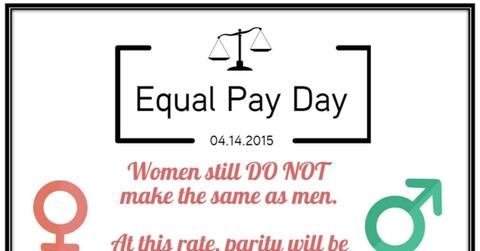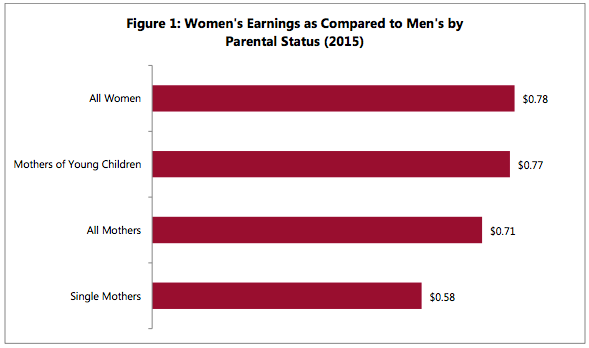New Study Shows While We’re Getting Closer To Ending The Wage Gap, There’s Still Much Left To Do

U.S. Census Bureau released a new study on Equal Pay Day. Equal Pay Day, falls on April 14th, marking just how far into the year a woman must work to earn as much as a man. In an effort to highlight how this gender-based wage gap affects women on a daily basis, the U.S. Census Bureau released a new study. The Equal Pay Act, signed by President John F. Kennedy on June 10, 1963 “prohibits discrimination on account of sex in the payment of wages by employers.” When President Kennedy signed the Equal Pay Act, women made 59 cents for every dollar men made. Today, women make on average 78 cents per dollar men make for the same work, according to findings of the US Census Bureau in 2015. So while we’re getting closer to ending the wage gap, there’s still much left to do. According to U.S. Census Bureau, women make up nearly half of the workforce and are breadwinners in nearly two-thirds of families with children, yet women makes a smaller income compared to a man working the same job. The study shows that women, especially those of color and single mothers continue to earn a smaller salary due to the gender-based wage gap. In other words according to the study, the national median pay for a woman working full time, year round is $39,157 while median yearly pay for a man working full time, year round is $50,033.5 This means that, overall, women in the United States who work full time, year round6 are paid $10,876 less annually than men who work full time, year round – or just 78 cents for every dollar. Single mothers were heavily focused on during this research, and it showed that while they work equally has hard as any other parent to provide for their families, single mothers are paid 58 cents for every dollar paid to men. The study also looked at what it could mean in monetary terms for these single mothers, if the wage gap were eliminated, and on average it could mean 180 more weeks of food for her family (3.5 years’ worth) or 25 more months of rent or 35 more months of child care. While most people tend to thing the wag gap only affects women, the study shows that women of different races continue are also subjected to this payment difference. for instance African American women who work full time, year round are paid 64 cents for every dollar paid to white, non-Hispanic men. And Latinas who work full time, year round are paid 56 cents for every dollar paid to white, non-Hispanic men. And while the wage gap is smaller for Asian American women who work full time, year round, they are still paid just 79 cents for every dollar paid to white, non-Hispanic men. In addition to race, the study shows that the wage gap also varies by state. For example In Louisiana, the state with the largest gap, full-time working women are paid, on average, 66 cents for every dollar paid to men. The District of Columbia’s gap is the smallest, with women who work full time, year round paid 91 cents for every dollar paid to men. The study concludes with experts estimating that it will take another 43 years for the gender-based wage gap to close. They add that this can only be done with help of lawmakers and equal job opportunities. One idea they put forward in the study is that employers and lawmakers should work together to ensure that pregnant workers are not forced off the job or placed on unpaid leave because they require minor accommodations to protect their health. And while this might take years to complete, the study encourages both men and women to make this happen as fast as possible, since according to their research it will take 43 years for equal wages. In other words in 2058, women new to the workforce today will be nearing retirement, which means that days like today, the Equal Pay Day, is there to remind us of how to speed up this process through communication and activism towards equality.






